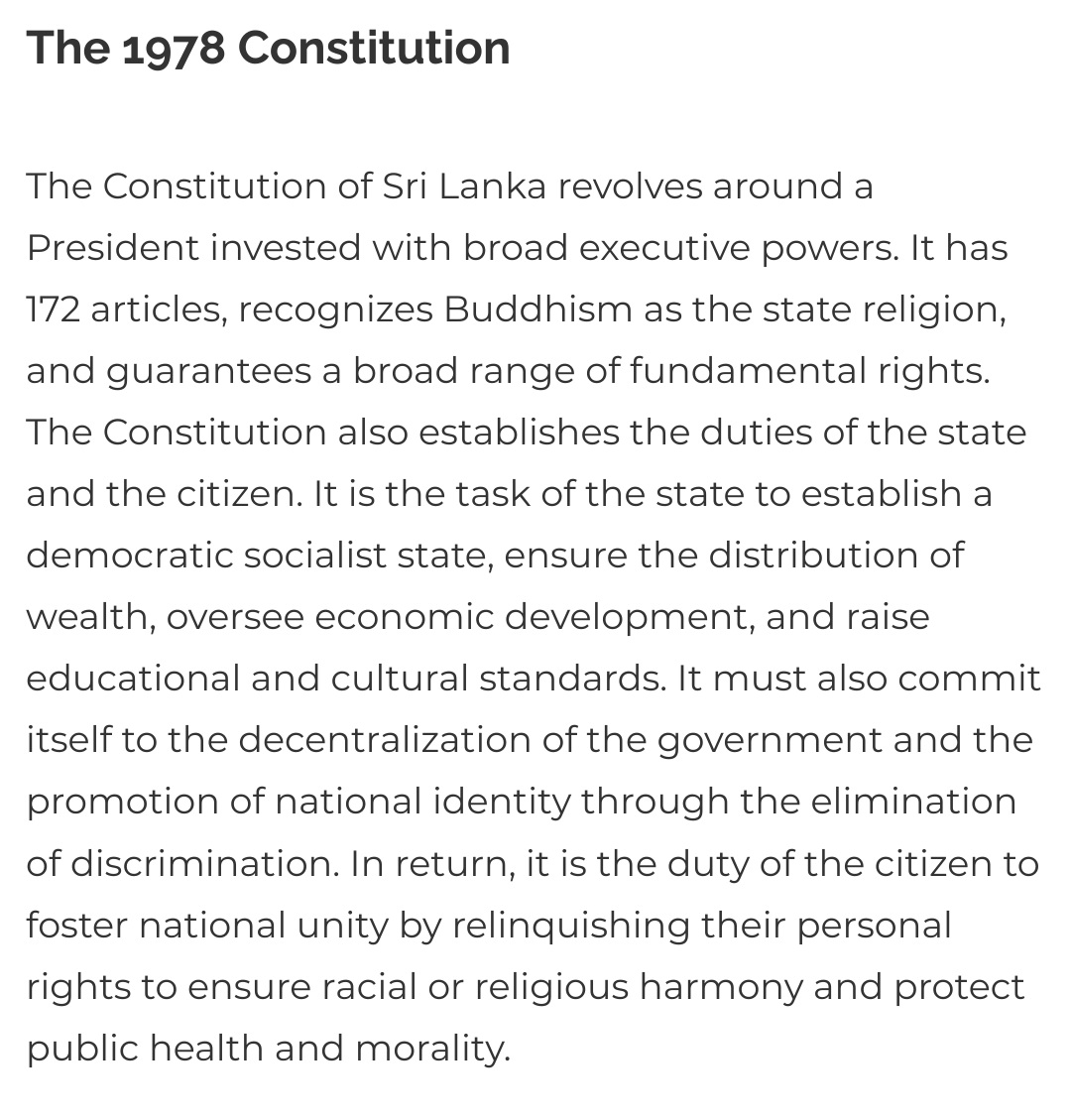
100%. Need clear separation of powers.
With direct elections for an executive President, who appoints the Cabinet of Ministers and sets government policy.
In parliament, the Speaker to be seen as the leader of the legislature. MPs responsible only for laws, amendments, repeals.
With direct elections for an executive President, who appoints the Cabinet of Ministers and sets government policy.
In parliament, the Speaker to be seen as the leader of the legislature. MPs responsible only for laws, amendments, repeals.
https://twitter.com/MNageswarRaoIPS/status/1343232734169165827
The Constitution and laws need to be democratised.
Rewritten in simple language, translated into every state language, and made available as original sources online, so people can access them and understand laws themselves instead of being dependent on self-appointed custodians.
Rewritten in simple language, translated into every state language, and made available as original sources online, so people can access them and understand laws themselves instead of being dependent on self-appointed custodians.
We need more local democracy and fewer regional satraps.
Dissolve the current states and upgrade 740 districts into elected Janapadas/Prefectures, to improve policy outcomes on the ground.
No more MLAs and DMs acting like local feudal lords. Bottom-up, accessible institutions.
Dissolve the current states and upgrade 740 districts into elected Janapadas/Prefectures, to improve policy outcomes on the ground.
No more MLAs and DMs acting like local feudal lords. Bottom-up, accessible institutions.
In each Janapada, assign community policing/crime prevention to local police, accountable to local citizens.
Assign law and order, crime investigation, counter-terrorism to a new central police force, independent of executive. Like the armed forces, with parliamentary oversight.
Assign law and order, crime investigation, counter-terrorism to a new central police force, independent of executive. Like the armed forces, with parliamentary oversight.
Split the Supreme Court into a Constitutional Court and Court of Final Appeal, with clear and separate functions and duties.
Give each Janapada a system a decentralised system of courts and alternative dispute resolution mechanisms, working in local languages and jargon-free.
Give each Janapada a system a decentralised system of courts and alternative dispute resolution mechanisms, working in local languages and jargon-free.
The issue is not that we have too much democracy, we have too little.
The current unelected and unaccountable bureaucratic and judicial institutions suffer from a "democratic deficit" and are all designed to thwart any aspirations of the people that can challenge the status quo.
The current unelected and unaccountable bureaucratic and judicial institutions suffer from a "democratic deficit" and are all designed to thwart any aspirations of the people that can challenge the status quo.
"In most democratic countries, ... the police work under the control of local self-government bodies.
But in India, the police is not answerable or accountable to the local people whose lives and properties it is supposed to protect." - @MNageswarRaoIPS
But in India, the police is not answerable or accountable to the local people whose lives and properties it is supposed to protect." - @MNageswarRaoIPS
https://twitter.com/MNageswarRaoIPS/status/1343868169799143425?s=19
Many of the suggestions in the above thread may sound radical or utopian, but they exist worldwide, including here in the Indian subcontinent.
Sri Lanka being an example, which enacted such reforms despite similar levels of religious diversity and colonial administrative legacy.



Sri Lanka being an example, which enacted such reforms despite similar levels of religious diversity and colonial administrative legacy.




For those looking for inspiration for what our next Constitution could look like, instead of copying dysfunctional and discredited models from the Anglosphere, let's learn from and improve on other Asian countries with similar challenges and experiences.
parliament.lk/files/pdf/cons…
parliament.lk/files/pdf/cons…
• • •
Missing some Tweet in this thread? You can try to
force a refresh










